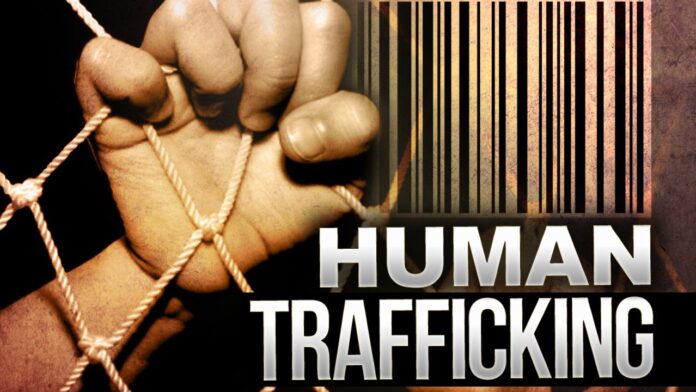An initiative led by United Way Worldwide and UPS will feature Brownsville as one of four cities across the United States in a pilot program designed to combat human trafficking at the community level.
On Wednesday, organizers announced the two-year pilot program in support of the United Nation’s World Day Against Trafficking in Persons, which will be overseen by United Way’s Center on Human Trafficking and Slavery.
The collaboration will see $300,000 provided to United Way of Southern Cameron County and local participants to convene and identify needs and gaps in Brownsville and the Lower Rio Grande Valley like housing, services, training, and policy.
UPS workers raised over $3 million for the program over the past two years, according to a press release announcing the initiative published on Wednesday. The program will be piloted in Brownsville, Las Vegas, Atlanta, and Louisville.
“Each of the programs will focus on addressing issues identified by the local United Ways as needing greater support, including housing (Atlanta); building stakeholders in poverty-stricken communities (Brownsville); the intersection with child abuse and neglect (Louisville); and tackling trafficking in a community with a prevalent commercial sex market (Las Vegas),” organizers wrote.
Ultimately partners hope that over the course of the program, the information collected in Brownsville will inform public policy shifts geared toward assisting victims and help locals recognize human trafficking victims, as well as what steps to take in order to seek help.
According to Traci Wickett, CEO and president of United Way of Southern Cameron County, Brownsville was selected alongside larger cities due to its high poverty rate, predominantly Hispanic ethnic demographic, and proximity to the border.
The U.S. Census Bureau currently lists Brownsville’s poverty rate at 31 percent.
“People of color are much more likely to be preyed upon than others, and poverty is a huge risk factor in being trafficked. The fact that we’re on a border, the fact that we’re Hispanic and the fact that we’re poor makes us a really good area for figuring out what this work should look like in regions that look like us,” said Wickett.
“What we hope to do is unearth practices that work. We’re going to do this in a collective manner, where we bring together all the people who need to be at the table we can possibly identify. We want to look at what the issues are and then what the most promising strategies are that we can use to address those issues.”
Organizations and individuals in the community focused on highlighting the issue of human trafficking and that are working toward solutions are encouraged to reach out to the local United Way chapter.
“We want to have all the right people at the table. If there are people that know they want to be a part of this work or are doing something about it, we would love to hear from them, because it will make us that much faster,” said Wickett.
She emphasized the importance of not only identifying victims of trafficking, but providing them with immediate support including shelter and counseling, to be connected with legitimate employment, and other resources integral to recovering.
“We all need to know that every day there are people in the RGV whose paths might cross with trafficking victims. We have to learn how to identify them and what to do next. And we have to make sure there is also a future for people who have been trafficked and are now taken out of that situation,” said Wickett.




